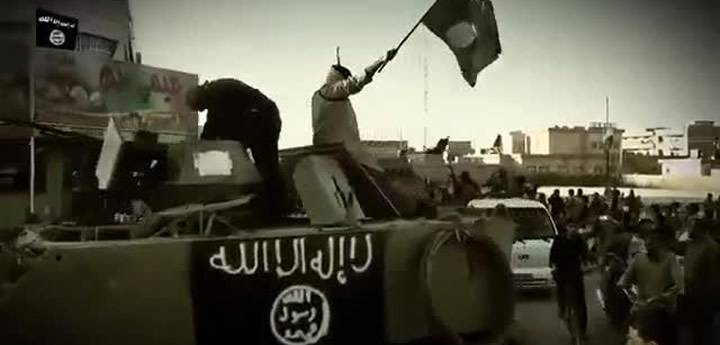On Monday morning, Turkish press reported that Turkey had granted the anti-IS coalition permission to launch air strikes from Incirlik Air Base in the east of the country.
By Monday afternoon the prime minister’s officials said that no such agreement had been reached and that talks were still underway. The confusion has been blamed on the misquoting of an interview with US National Security Adviser Susan Rice.
Turkish Foreign Minister Mevlüt Çavuşoğlu said:
“There is no decision reached at this point with regards to İncirlik or any other issue. So far, we have only agreed with the US on certain issues in the context of a training and equipping [moderate Syrian opposition]project.”
Retired Gen. John Allen, US special presidential envoy for the global coalition to counter the Islamic State (IS), and Brett McGurk, Allen’s deputy senior envoy, visited Turkey last week in an attempt to convince Turkish officials to contribute more to the coalition’s efforts. After the safe release of 46 Turkish hostages, who had been taken by IS when they conquered Mosul in June, the coalition has been increasingly calling on Turkey to act against the advance of IS in Syria and Iraq.
The focus of discussions have been on the coalition air strikes targeting IS convoys en route to fighting in the largely Kurdish town of Kobane, a Syrian town a stones throw from the Turkish border.
At the moment, the town of Kobane is being held by a Kurdish protection force known as the YPG. They have been operating in the region for the last three years protecting the Kurdish community from both extreme Islamist fighters and al-Assad’s forces.
For two weeks fighting between the Kurdish YPG and IS has raged for control of the strategic town. Reports say that the town has IS fighters on the eastern, southern and western flanks of the town. The only way the Kurdish militia can get much needed supplies of ammunition and humanitarian aid is from the north where lies the firmly shut border with Turkey.
However, Turkey has given little indication of any desire to intervene in what many are calling a humanitarian crisis. One newspaper went as far to draw parallels between the 1995 case of Srebrenica in Bosnia.
Some outside commentators are saying that Turkey’s reluctance to intervene comes from a desire to weaken Kurdish nationalist forces in the region. Turkey was engaged in a three-decades-long war with the PKK, a Kurdish terrorist group, until 2013 when a cease-fire was announced as part of the Erdogan government-led peace process.
Others are saying that Turkey fears terrorist attacks from IS, who have until recently had a relatively free reign of Turkey’s 510-km long border with Syria. On Monday, a report appeared on Hurriyet Daily, saying that 150kg of C4 explosives had been found in the city of Diyarbakir. The explosives are thought to belong to IS and were intended for attacks in Turkey.
Turkish tanks have been stationed above Kobani for weeks in case the fighting over the border spreads into Turkey; however, they remain determined to keep boots off the ground in Syria. This has done little but antagonise domestic relations inside Turkey, with Turkey’s inaction sparking widespread violence in cities throughout Turkey. Reports about exact numbers are confused, but most estimates say that over 30 people died as a result of clashes between Kurdish groups, nationalists, IS sympathizers and police.
The threat of more PKK terrorism has quickly come to the fore in Turkey, undermining the sincerity of the nine-year-old peace process between the Erdogan government and the Kurdish parties. Over the weekend there were reports of a PKK led assassination of a police chief in Turkey’s eastern province of Bingöl. This was followed by PKK commanders saying they will break off peace talks and resume their guerrilla war within Turkey, plunging yet another country in the region into armed conflict.
The voice of Turkish Land Forces Commander Gen. Hulusi Akar was not hopeful saying on Monday that Turkey should be ready for any kind of “warfare”.
Security has been notably stepped up in Turkey’s cities. The Federation of Private Security Associations confirmed that the number of guards at shopping malls in Istanbul had increased almost 30 percent in the last week. After three decades of PKK related violence in Turkey, most shopping malls in Turkey already have metal detectors in their entrances.
Meanwhile, as the world seems focused on IS’s attempt to take a town in northern Syria, very little attention has been paid to the progress being made by IS in western Iraq. US coalition-led air strikes have done little to stave off IS’s advance. They now hold most of the cities an towns in Anbar province after capturing Hit and Ramadi, which lie west of Baghdad. The Iraqi army is proving relatively ineffective against the Sunni militants despite air support.
The most effective anti-IS group appear to be a sectarian Shia group who recently advanced into Diyala province. They, however, do not distinguish between IS and other Sunni groups, illustrating how viciously sectarian the region has become. When Iraqi Kurds took back the Rabia border crossing with the help of coalition air support there were reports that just one Sunni person remained in the city.




